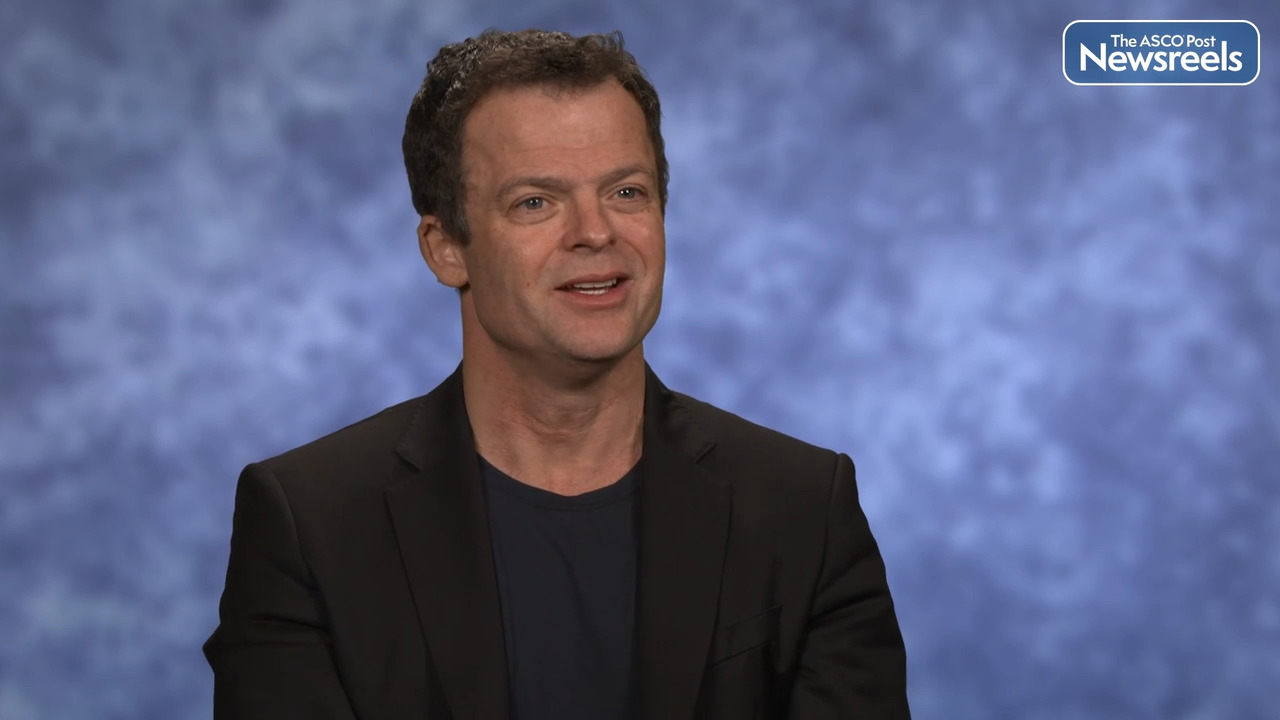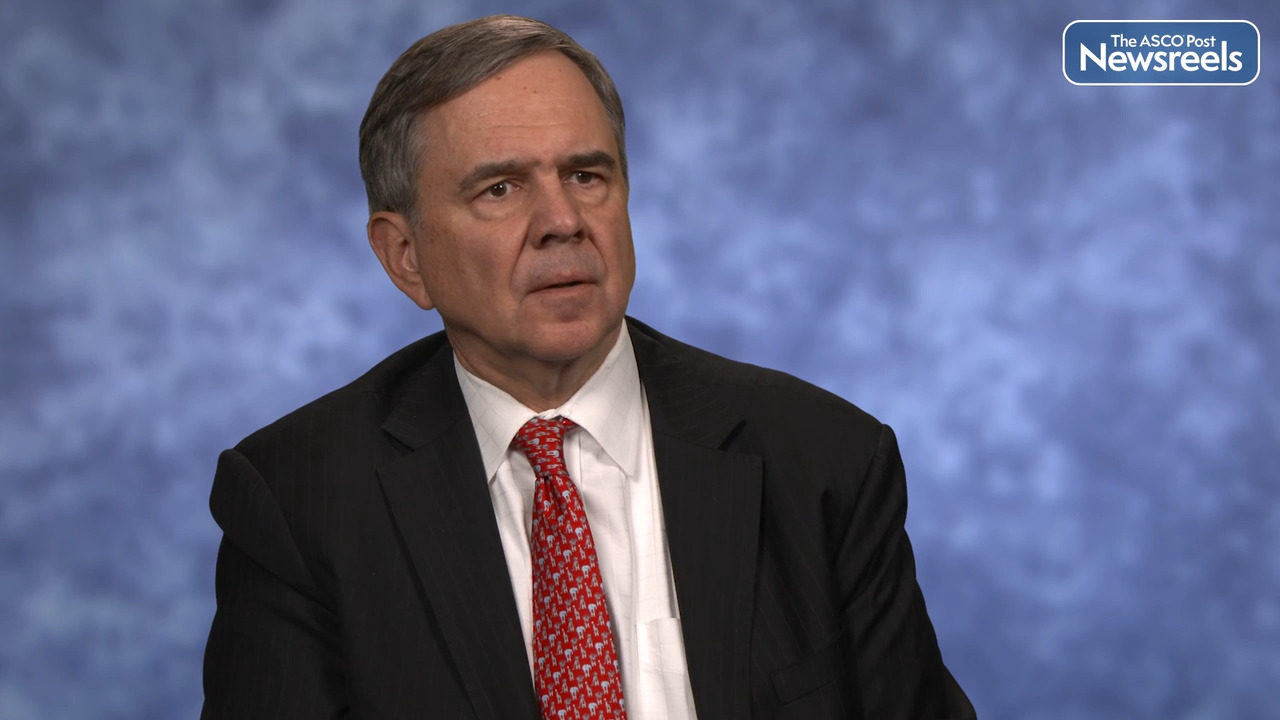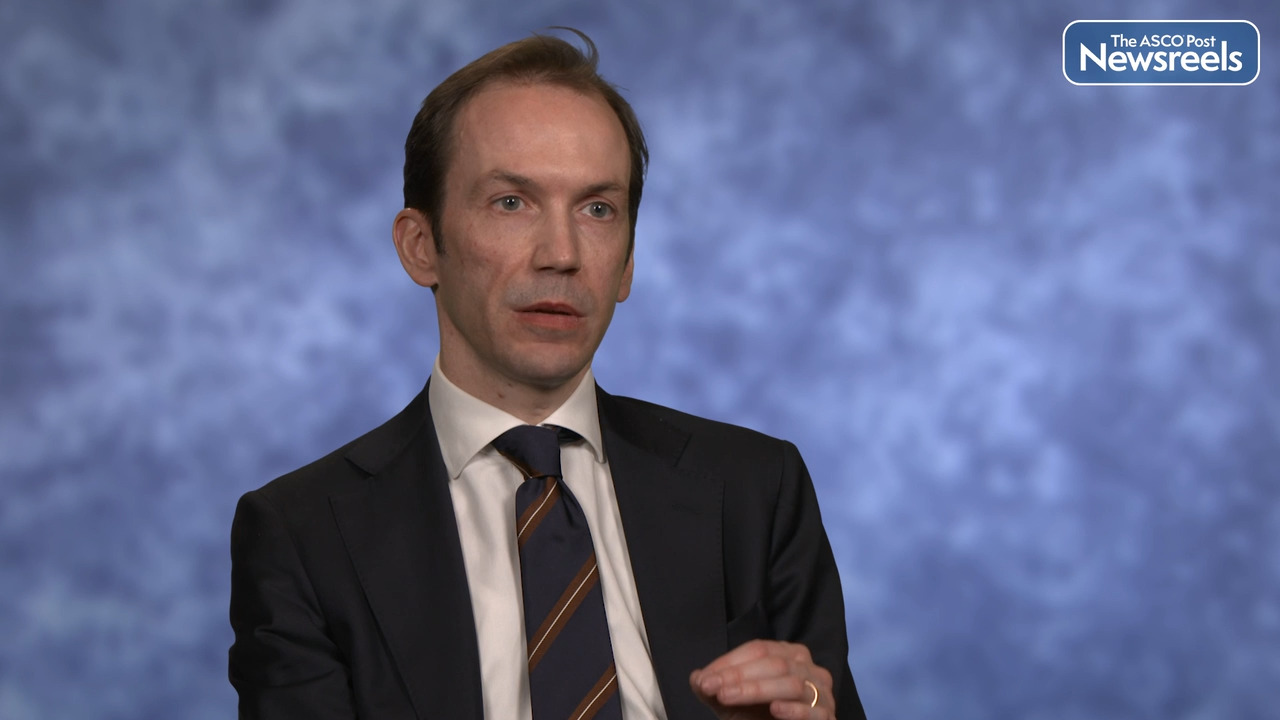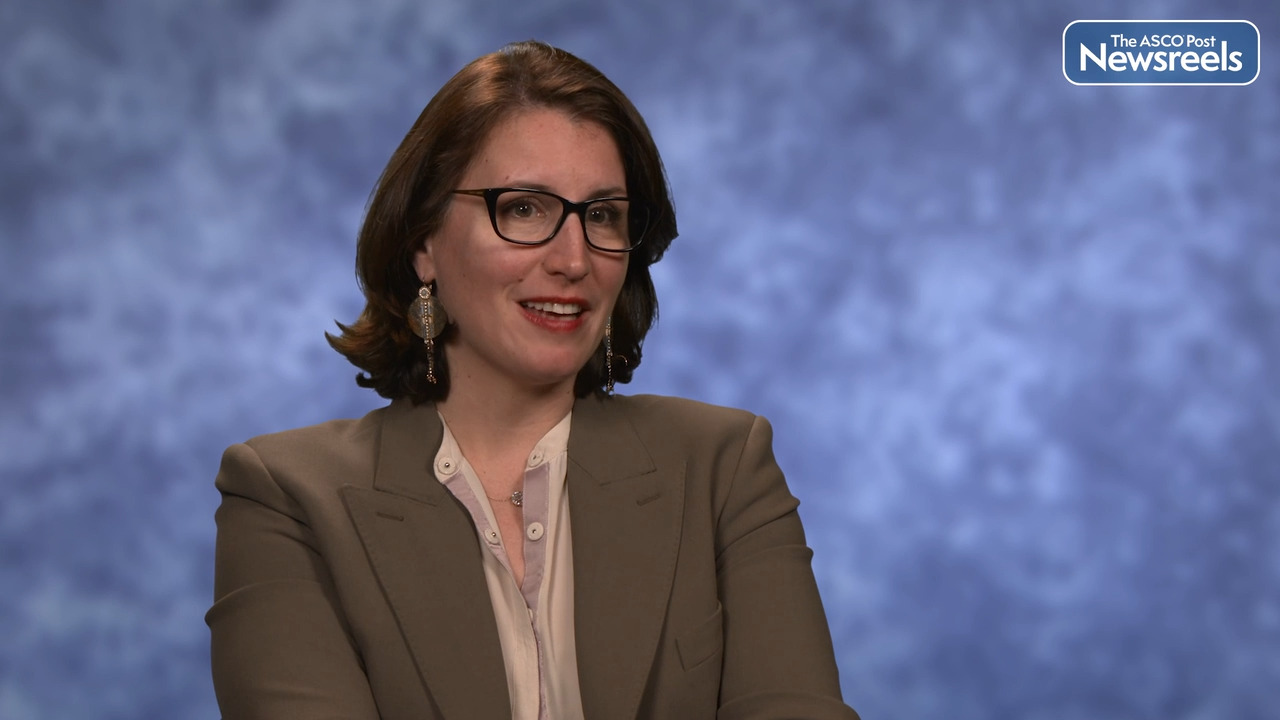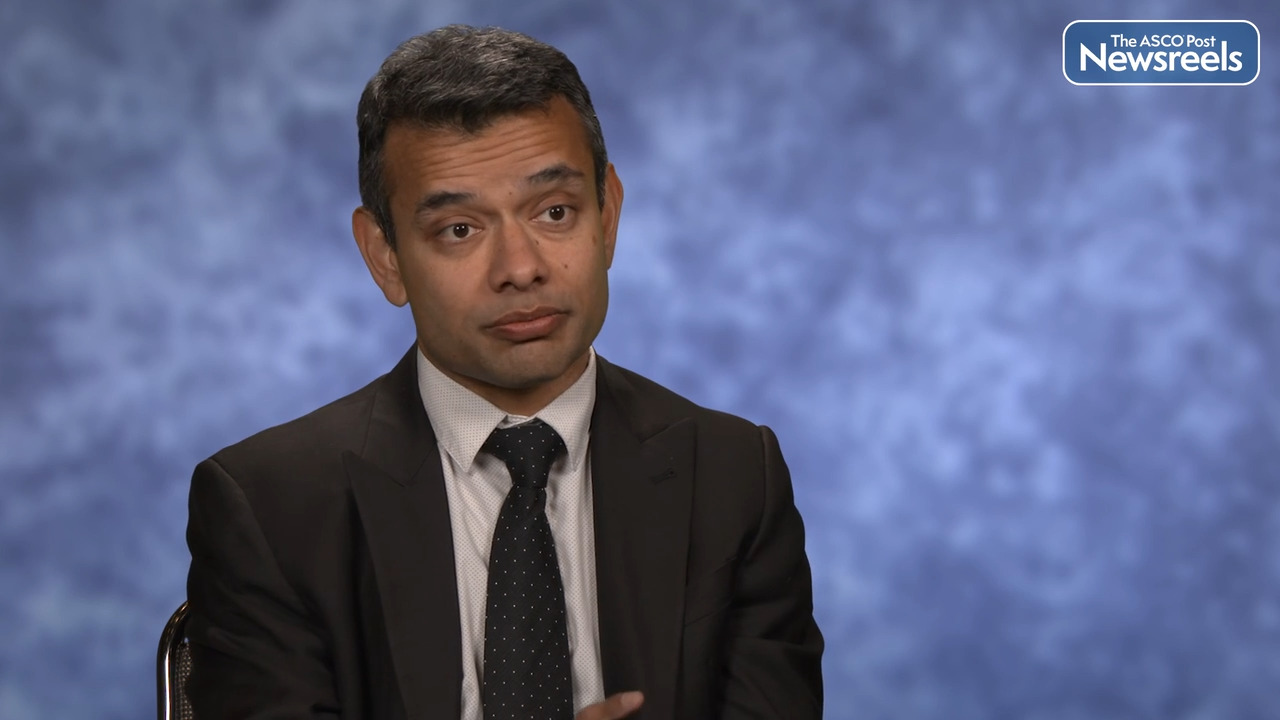Transcript
Disclaimer: This video transcript has not been proofread or edited and may contain errors.
This is a Phase III registrational study which tested whether Rucaparib could improve radiographic progression-free survival in patients with BRCA1, BRCA2, or ATM-altered metastatic, castration-resistant prostate cancer. To be eligible for the study, the patient had to have a qualifying pathogenic alteration in one of those three genes, and they had to be previously treated with at least one androgen receptor pathway inhibitor. Importantly, docetaxel could not have been used in the castration resistance setting, so this is really a pre-docetaxel clinical trial for CRPC. But the patients could have received docetaxel in the hormone sensitive setting, which was given in just over 20% of patients.
At GU ASCO23, we presented the final analysis of the primary endpoint of radiographic progression-free survival, which indeed showed that Rucaparib is superior to standard of care physician's choice therapy. Importantly, the physician's choice therapy in this study included docetaxel, abiraterone, and enzalutamide. So really it was meant to reflect real world practice where the treating physician had the liberty to choose whatever they felt was the best possible treatment for the patient. Rucaparib was superior to that panel of options with a 50% improvement in RPFS or death. So this was statistically significant with a median RPFS of 11 months versus six.
And importantly in the subgroup analysis, Rucaparib was superior to docetaxel and to either abiraterone or enzalutamide. As it turned out, of the patients on the control arm, 55% were treated with docetaxel and we presented those results here at ASCO. This is the first time after 30 years of doing clinical trials, trying to beat docetaxel, that any agent has beaten a docetaxel containing control arm in an mCRPC study. It's the only PARP inhibitor to have done that.
We really accomplished two main things here. One is the current label for rucaparib as in the post-docetaxel setting, so now we can comfortably say that rucaparib is appropriate in the pre-docetaxel setting, and we've demonstrated the superiority of rucaparib over docetaxel, which, as we saw in the study, is felt by most investigators to be the most appropriate alternative therapy for these patients. So the clinical implications are certainly that rucaparib monotherapy can be applied earlier in the disease course than the current approved indication. Of course, that's pending regulatory determination and review of the results. This becomes a very attractive option then for patients who have BRCA1 or 2 mutations and who have progressed after at least one ARPI. An important piece and data that we did discuss was the fact that the benefit is really in the BRCA subgroup and not in the ATM subgroup.
That's not surprising data. It's consistent with prior clinical trials, but I do think in clinical application, it's something we want to emphasize. So for next steps, certainly the first question is going to be FDA acceptance of the results. Will they give an expanded label indication to move Rucaparib earlier? Of course, that's necessary before clinicians in the United States can use Rucaparib in an earlier line setting. We will look at secondary analyses then, right? We'll look at the quality of life data, we'll look at analyses by further subsets, and I think this will be important for the treating clinician, right, to optimize use of the drug.
